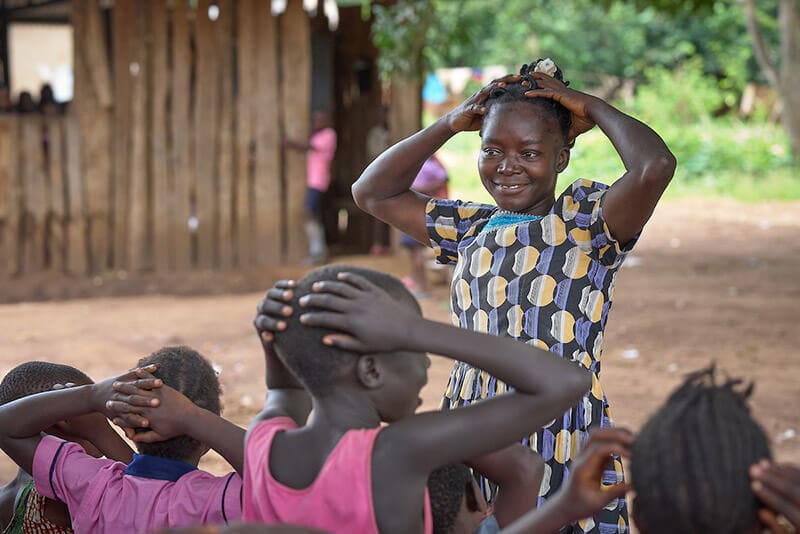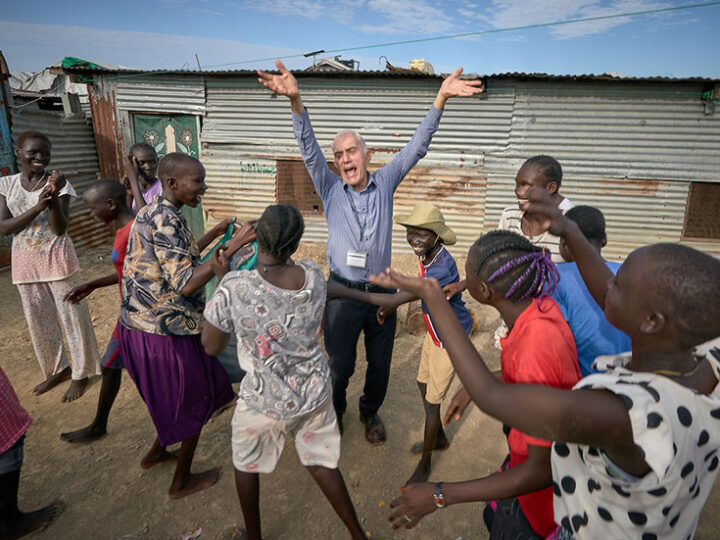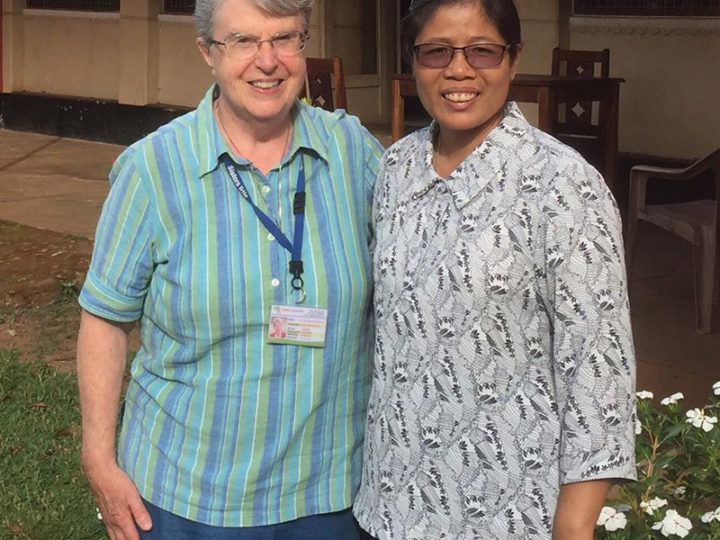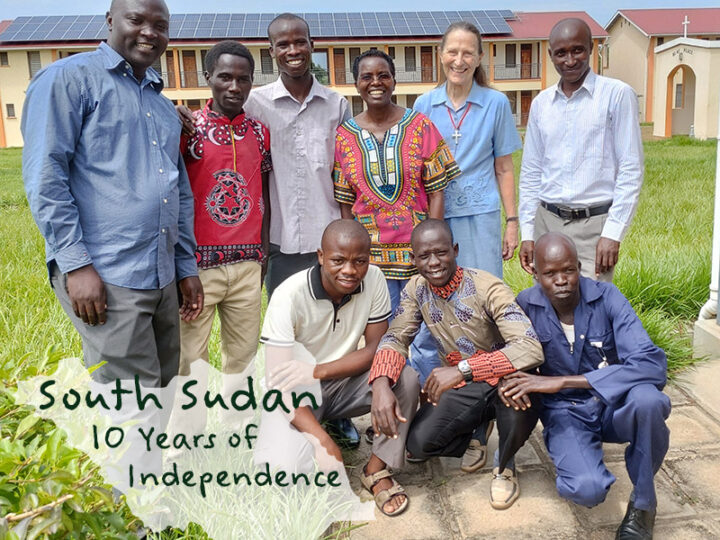
Becoming a teacher wasn’t easy for Madelina Louis.
A member of the Azande tribe from Nzarra, along South Sudan’s border with the Democratic Republic of the Congo, Madelina enjoyed learning and wanted to share her thirst for knowledge with others. So in 2013, she enrolled in the Solidarity Teacher Training College (STTC) in Yambio.
While most students live on the campus, Madelina’s husband wouldn’t accept that. So she tried commuting from home to the school.
“I tried to do the work at home very early. I had to do everything in the morning before leaving in order to arrive in class on time. He also needed me to cook. I was having a hard time finding time to study. From school, I went directly home to cook. And after cooking, I was tired. I had to sleep,” she said.
Nonetheless, she persevered, and upon graduation, Sister Margaret Scott, the college’s principal, arranged for a six-month internship for Madelina in neighboring Uganda.
“He said that because of sister he would allow me to go,” Madelina said. “So I went to Uganda for six months, and when I came home I discussed my studies with Sister Margaret, and she suggested I go study more at the Yei Teacher Training College. When I went and told this to my husband, he wasn’t happy. He asked why I needed to study more. Did I want to become the president?”
Once again, her husband ceded because of Sister Margaret’s involvement. But Madelina’s studies in Yei were cut short when war broke out there in 2016. She returned to Yambio, but says she had a hard time even going to classes at the STTC because her husband would assume she was seeing another man.
When she negotiated a job working on a textbook about the Azande language, her husband objected that she would have to leave town for meetings. Her new employer wrote her husband a letter, but he wouldn’t consent, so she had to quit.
Madelina then got a job at a Catholic boarding school in Riimenze, an hour away. But that didn’t last long, as her husband complained and finally announced he would only allow her to work within ten kilometers from their home. She got a local teaching job, but she was only allowed to leave home at a certain time and go directly to her work and back. An NGO wanted to interview her for another job, and he refused to let her go.
“He wouldn’t allow me to go at any time for what I wanted to do. He refused to let me do anything. So I would just sit alone, thinking that people should just let me die,” she said.
Louis’ problems weren’t limited to home. At the local government school where she was teaching, sexual harassment was rampant.
“Some of those big people there, the directors, if they see a woman they say that they want you. If you say no, they warn you that you’ll see the consequences,” she said.
The constant pressures convinced Madelina to quit, her dream deferred. Yet after six months, she was offered another chance.
“A school came to ask me to teach. Members of the community came and requested I go there. So I went. I really didn’t want to leave teaching. It’s long been my dream, and when I teach I learn so many things.”
Today Madelina is the head teacher at the Sabegbia Nursery and Primary School in Yambio.
“I want to be a teacher to help develop the country, to transmit the knowledge I have. Being a teacher is a job given by God. So in a country at war, a teacher should be a peaceful person, and teach how to negotiate, to dialogue, to overcome the conflict,” she said.
Madelina credits her experience at the STTC for modeling peaceful coexistence. “People from many tribes come there to study, and they become your friends. That helps build peace,” she said.
Madelina says the resistance she got from her partner isn’t unusual. “Maybe only 5 percent of men allow their women to do the work they want,” she said.
Not surprisingly, Madelina keeps a close eye on the girls in her classes, counseling them to stay in school.
“They get pressures to drop out from their parents and others. We tell them not to drop out, that if they can finish school they’ll be able to get whatever they want. I tell them about my own experience, help them understand that they can’t depend on men to look after them, that they need to get an education and a job so that they can sustain themselves and help their families.”
Above: Madelina Louis teaches a class at the Sabegbia Nursery and Primary School in Yambio, South Sudan. A graduate of the Solidarity Teacher Training College, Louis is the school’s head teacher.
Story and photo by Paul Jeffrey





